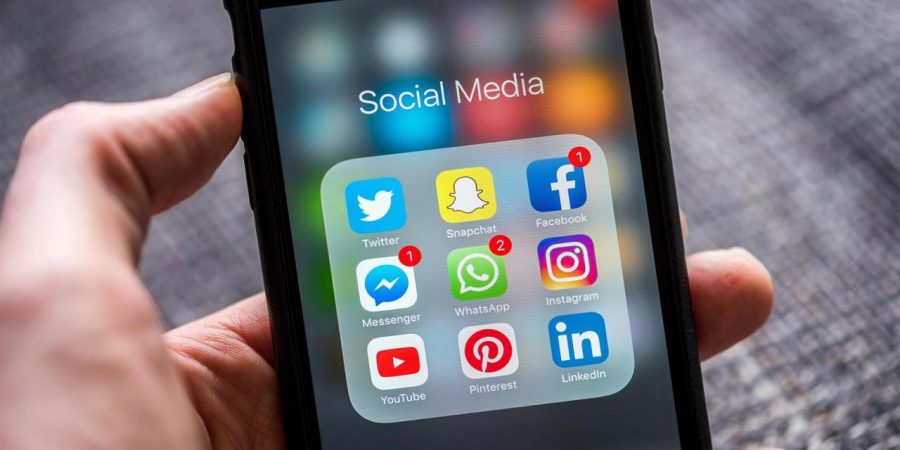Is it Time to Delete Social Media for Good?
October 24, 2018
The widespread use of modern social media and whether it does more harm than good is a subject of debate in our society today.
Social media has become more invasive than it has ever been before. In the past few years, apps like Instagram, Facebook, Snapchat, and Twitter have acquired new features that make it easier for people to contact you and know exactly where you are and what you are doing all the time.
Social media should be a platform for people to keep in touch and share new ideas and opinions, but instead, it has turned into a place largely devoid of privacy. For example, Snapchat recently obtained a new feature which allows all your friends to look on a virtual map and see where you are, who you are with, and when you are there. This is a default feature and requires the user to turn it off if they do not want their location broadcast to all of their friends. This is not only an invasion of privacy, but it also takes away from the app’s original purpose: to communicate with friends by sending pictures back and forth.
Many social media apps also require more private information than is necessary to create a profile. When signing up for a Facebook account, it asks you for your date of birth, the schools you attended, your workplace, your relationships, and even your family members. The app then collects data about your likes, interests, buying habits and political affiliations. The more information that a social media app knows about you, the more susceptible you will become to marketing schemes that make them money.
The misuse of social media can be dangerous when an app and other users of the app know more about you than you would care to share. An example of this misuse was recently in the news. Facebook was caught up in a scandal that involved private information from millions of users being collected, shared and used without their knowledge.
Privacy concerns are an obvious problem with social media, but another problem is that it can be extremely damaging to teens.
Places like Instagram and Facebook portray a version of life that is unrealistically perfect. This pulls users in, but it also hurts them because they are comparing somebody’s best day to their ordinary day. Teenagers are most susceptible to this because adolescence is a difficult time in life. They are developing and transitioning into adulthood and are trying to define themselves and how they relate to the world. It is hard to navigate that when teens are constantly comparing themselves and their lives to others online.
Another harmful consequence of social media is how it isolates teenagers.
Social media is a place where you are constantly connected, so you may be asking yourself how someone could possibly be lonely when they have the power to talk to anyone, at any time. Many teens sacrifice real interactions and relationships for shallow relationships and brief, meaningless interactions online. This can diminish your ability to interact in social situations and meet new people in the real world, which then results in loneliness. The more time you spend on social media, the more you will depend on it to make you feel connected to people. Many studies reveal that social media has been proven to cause anxiety, loneliness, depression, and antisocial behavior in teens.
It is clear that social media is a part of our society that is not going away. It is up to us as users of these applications to limit the amount of control they have in our lives and limit the amount of personal information we allow them to have. Most importantly, we should not use social media as a substitute for real friendships and relationships. We need to remind ourselves that the Instagram is not always a true representation of reality.
Social media can be a part of our lives without controlling out lives.

























